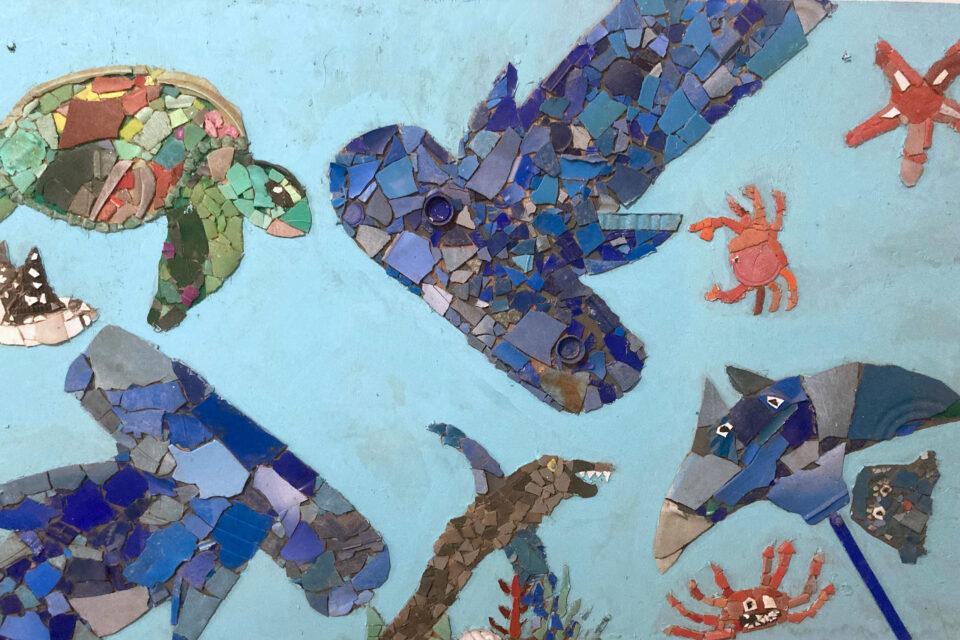

ReCiBa
Plastic pollution is one of the most pressing issues facing marine wildlife worldwide – and global problems need global solutions. Marine plastic litter is everywhere, but in many countries, there is little-to-no information available about its sources, distribution, and impacts. ReCiBa is helping us to understand the potential of storytelling and the power of objects in addressing the global challenge of marine plastic pollution.
Plastic pollution is one of the most pressing issues facing marine wildlife worldwide – and global problems need global solutions. Marine plastic litter is everywhere, but in many countries, there is little-to-no information available about its sources, distribution, and impacts. ReCiBa is helping us to understand the potential of storytelling and the power of objects in addressing the global challenge of marine plastic pollution.
What is ReCiBa?
‘Cientificos de la Basura’ (Litter Scientists) is a citizen science programme investigating the issue of plastic pollution. It started in 2007 by bringing together schools along the Chilean coast. In 2018, the programme expanded to the other Latin American countries from the Eastern Pacific to generate information about the litter problem along the Pacific coast that unites all these countries.
This ‘Red Latino Americana de los Científicos de la Basura’ (Latin American Network of Litter Scientists), or ReCiBa, brings together scientists, teachers and schoolchildren to generate scientific data about litter sources, distribution and impacts, and use scientific, environmental education as a marine conservation strategy. The schoolchildren and their teachers learn about the ocean and marine life. They then use the citizen science methods to investigate marine plastic litter, focusing on Eastern Pacific countries of Latin America. They share the knowledge they have created with their local communities and implement local mitigation strategies, which might, in the future, also contribute to regional policies.
Galapagos and marine litter
While the Galapagos Archipelago remains one of the most pristine ecosystems in the world, sadly it is not exempt from plastic pollution. At least 18 different species in the Galapagos Islands, including turtles, marine iguanas and sea lions, have been recorded entangled by plastic such as bags and lines or having ingested it after mistaking it for food.
Galapagos Conservation Trust (GCT) has been working closely with the Galapagos National Park (GNP) and other island partners to understand the best approach to tackling plastic pollution in the Archipelago since 2017. The result is the Plastic Pollution Free Galapagos programme, a £1.5 million multi-year project, which will feed into broader work looking to tackle pollution across the Eastern Pacific region.
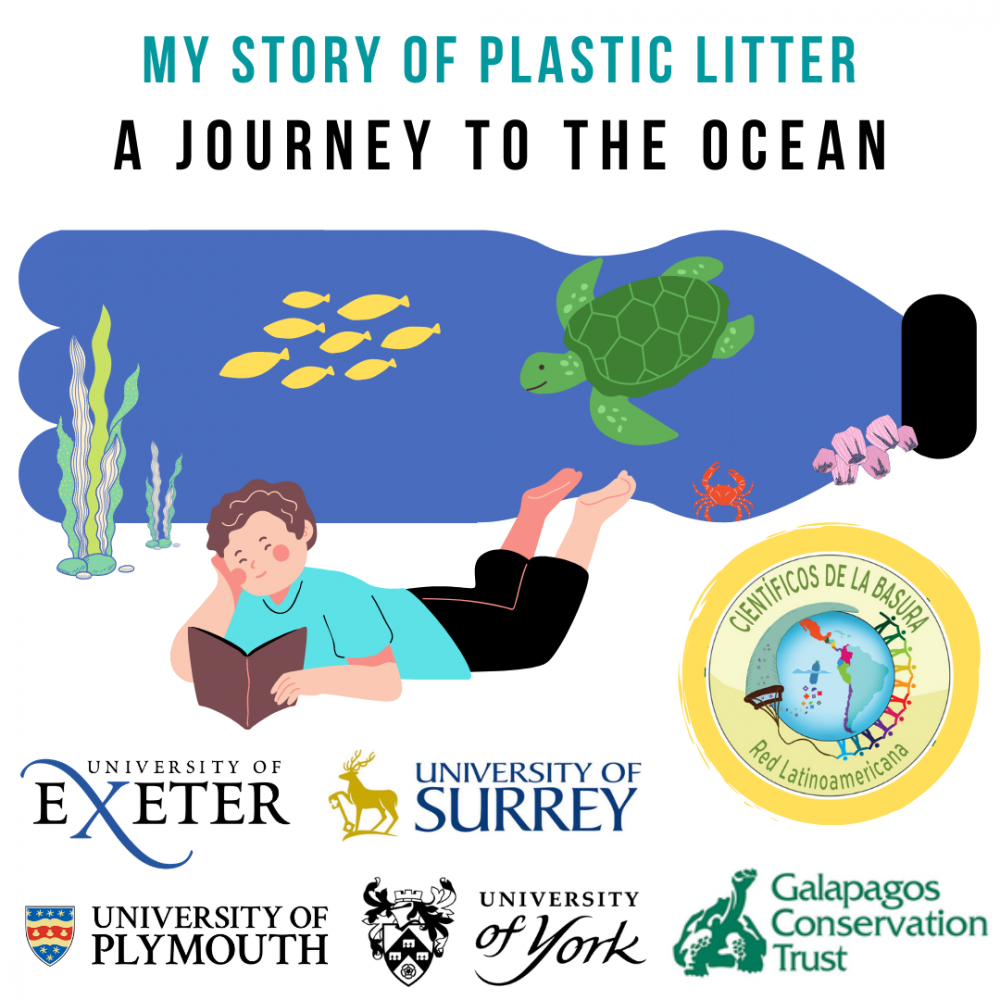
Plastic Storytelling
The pandemic made the ReCiBa network, of which GCT is a part, think about understanding marine plastic litter as a problem that often begins in the home. The project ‘My story of plastic litter: a journey to the ocean’ asked students aged between 10 and 18 to produce a story about the journey of a plastic object. The students had previously collected items on a beach during an earlier stage in the project. The idea came from GCT’s Exploring Ocean Plastics learning resources and has built on our ‘Science to Solutions’ workshop, which encouraged participants to create narratives of plastic litter found on several beaches in Galapagos.

Just under 100 stories were entered by children across the coastal communities of the Eastern Pacific (Ecuador, Peru, Chile, Colombia, Panama, Costa Rica and Mexico). These included students from Tomas de Berlanga school and the Mola Mola club both on Santa Cruz. You can read the stories in Spanish on the ReCiBa website, or we have translated some into English below. Thanks to the students’ imagination, the stories take us on exciting journeys into the ocean world.
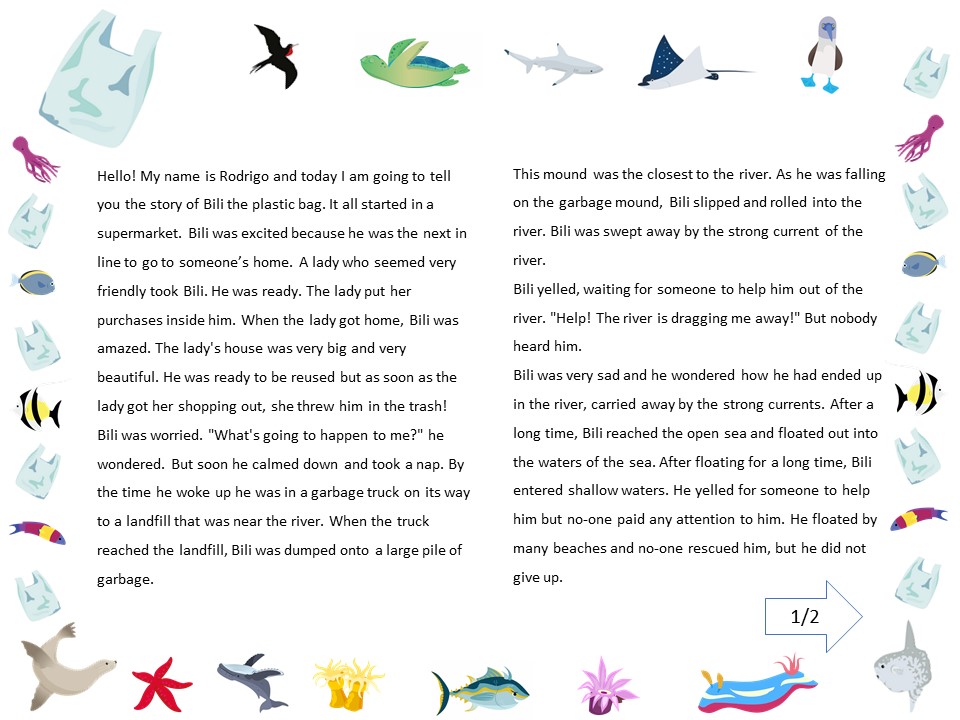

What will we do with the stories?
We’re hoping to see whether creating a story about litter can call on emotions and attachments with objects. The creative expression could help students reflect upon their behaviour and use such objects in their daily lives. Writing the story of a toothbrush found on a remote beach could help students question their use of toothbrushes and reflect upon recycling practices. Those stories, comics, and poems help us understand the perception that children have of marine litter, the causes they identify as responsible for this pollution, and the potential solutions, both personally and on a global level.
A multidisciplinary team is currently examining the stories and the impact this activity has had on the students. Using qualitative analysis, the team are exploring trends and emotional patterns in those narratives. Combining with quantitative methods, they will also explore correlations between those narratives (i.e. do groups of students focus on specific aspects, is there a difference in age, country, etc.).
The team also ran a short questionnaire survey before and after the story exercise to examine baseline differences, to see if there was a difference between students who had previously taken part in ReCiBa activities and for students who had not, and to examine if their knowledge, concern and behaviour has changed as a result of engaging in this activity. Subsequently, the analysis will help answer the solutions, barriers to recycling and perceptions of marine litter. Overall, the project will help us understand the potential of storytelling and the power of objects in addressing the global challenge of marine plastic pollution.
How you can help
Our outreach work spans multiple programmes and is a significant element of our Plastic Pollution Free Galapagos programme, a £1.5 million multi-year project, which will feed into a network looking to tackle plastic pollution across the Eastern Pacific region. Please help us to make Galapagos plastic pollution free by donating today.
Related articles

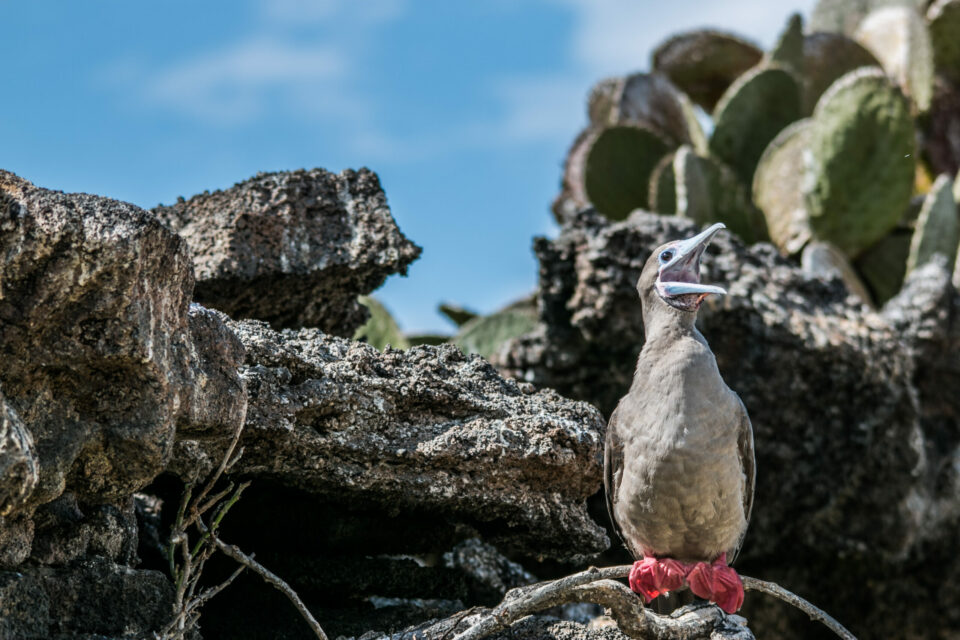
How to have an eco-friendly Christmas
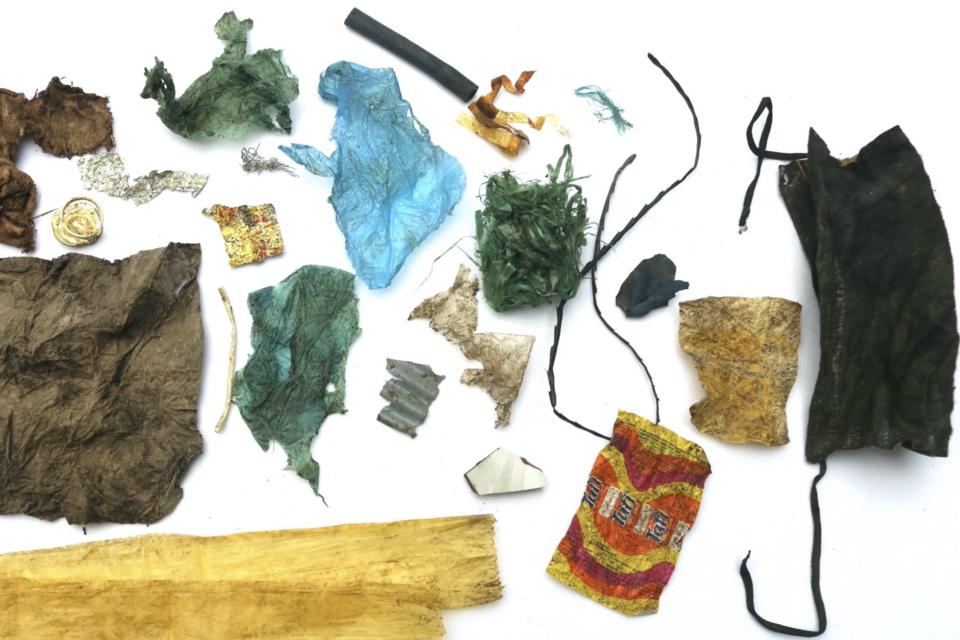
New research shows that Galapagos giant tortoises are ingesting plastic waste
